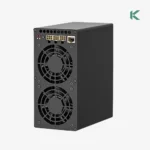Blockchain technology has gained tremendous attention over the past decade, with Bitcoin and other cryptocurrencies leading the way. But beyond digital currencies, there’s an innovation at the heart of blockchain that is revolutionizing industries — smart contracts. These self-executing contracts have the potential to transform everything from legal agreements to financial transactions. In this blog post, we’ll dive deep into what smart contracts are, how they work, and why they’re considered the backbone of blockchain technology.

Content
What Are Smart Contracts?
A smart contract is a self-executing contract where the terms of the agreement between the buyer and seller are directly written into lines of code. The code and agreements exist across a decentralized blockchain network, making them transparent, secure, and tamper-proof.
In essence, a smart contract functions like a traditional contract but with the added benefit of automation. Once the pre-defined conditions within the contract are met, it automatically executes the specified actions without needing intermediaries, such as lawyers or banks.
How Do Smart Contracts Work?
Smart contracts operate on blockchain platforms like Ethereum, Binance Smart Chain, or Solana, where they are written in code and deployed. Here’s a simplified breakdown of how they work:
- Contract Creation: The involved parties agree on the terms and conditions of the contract, which are then translated into computer code. For example, if one party is selling a house and the other is buying, the terms could include payment amount, deadline, and property transfer requirements.
- Storing on the Blockchain: Once the contract is written, it is stored on the blockchain. Since blockchain is decentralized, no single entity controls it, ensuring the contract is both secure and transparent.
- Execution: When the pre-defined conditions in the contract are met, the smart contract self-executes. For example, once the buyer makes the payment, the ownership of the house automatically transfers to them without requiring manual intervention.
- Immutable and Final: After execution, the contract is immutable and cannot be altered. This eliminates the risk of tampering and ensures that both parties are bound to the terms they initially agreed upon.
Key Features of Smart Contracts
Smart contracts bring several unique features to the table, differentiating them from traditional legal agreements:
1. Automation
One of the biggest advantages of smart contracts is automation. Once the terms of the contract are met, the code self-executes without needing a middleman to oversee the process. This removes delays and human error, making transactions faster and more efficient.
2. Security
Smart contracts are built on blockchain technology, making them highly secure. Since data on the blockchain is encrypted and spread across multiple nodes, altering or tampering with a smart contract is nearly impossible. This makes them reliable for handling sensitive agreements like financial transactions or property transfers.
3. Transparency
All parties involved in a smart contract can view its terms and how they are executed. This transparency builds trust, as no hidden clauses can be added after the contract is created. Every transaction and action within the contract is publicly recorded on the blockchain.
4. Immutability
Once a smart contract is deployed on the blockchain, it cannot be modified or tampered with. This immutability ensures that both parties stick to the agreed terms, eliminating the risk of fraud or dishonesty.
5. Cost-Efficiency
Smart contracts cut out intermediaries like banks, notaries, or brokers, which can significantly reduce the costs associated with transactions. Whether it’s buying a house, transferring funds, or executing a will, smart contracts lower the need for third-party services and the fees that come with them.
Real-World Applications of Smart Contracts
Smart contracts can be applied in a wide range of industries, revolutionizing the way business is conducted. Let’s explore some real-world applications:
1. Financial Services
One of the most popular use cases for smart contracts is in decentralized finance (DeFi). Smart contracts can facilitate loans, insurance, and investments without needing traditional banks or financial institutions. For example, in a DeFi lending protocol, lenders and borrowers use smart contracts to agree on loan terms, interest rates, and repayment schedules without intermediaries.
2. Real Estate
In real estate, smart contracts simplify the property buying and selling process. When a buyer and seller agree on terms, the smart contract can handle everything from the transfer of ownership to the payment process. This eliminates the need for notaries or real estate brokers, reducing the time and costs associated with property transactions.
3. Supply Chain Management
Smart contracts can enhance supply chain transparency by ensuring that each step of the production and distribution process is automatically verified and recorded on the blockchain. For example, a company could use smart contracts to automatically pay suppliers when goods are delivered, ensuring efficiency and reducing payment delays.
4. Healthcare
In the healthcare industry, smart contracts can improve the handling of patient records and insurance claims. Instead of relying on paper documentation or multiple systems, smart contracts can ensure that medical records are securely stored, accessed only by authorized parties, and automatically updated when new data is added.
5. Legal Agreements
Smart contracts could one day replace traditional legal contracts. Wills, employment contracts, and business agreements could be executed automatically when the conditions are met. This reduces the need for legal professionals to oversee these agreements, lowering costs and speeding up the process.
Benefits of Smart Contracts
Smart contracts offer numerous advantages over traditional agreements, some of which include:
- Speed and Efficiency: With no need for intermediaries, smart contracts execute instantly once the conditions are met.
- Cost Savings: Fewer intermediaries translate into lower transaction costs, making smart contracts a cost-effective alternative to traditional contracts.
- Trustless Agreements: Since smart contracts are built on blockchain, they don’t require trust in any single party. All actions are publicly verifiable and immutable.
- Reduced Risk of Fraud: The immutability and transparency of smart contracts make them highly secure, reducing the chances of fraud.
Challenges and Limitations
While smart contracts are a promising technology, they come with certain challenges:
- Code Vulnerabilities: Smart contracts are only as reliable as the code they are written in. Bugs or vulnerabilities in the contract’s code could lead to unexpected behavior or security risks.
- Legal Uncertainty: Since smart contracts operate on blockchain networks and often involve decentralized entities, there are legal gray areas regarding their enforceability in traditional court systems.
- Scalability: Current blockchain networks can struggle with scalability issues, which may limit the speed and efficiency of smart contract execution as more users join the network.
Conclusion
Smart contracts are the backbone of blockchain technology, providing a powerful tool for automating and securing digital transactions without intermediaries. Whether in finance, real estate, supply chains, or healthcare, smart contracts hold the potential to streamline processes, reduce costs, and enhance transparency across industries.
As blockchain technology continues to evolve, smart contracts are poised to play an even bigger role in reshaping how we handle agreements and transactions in the digital world. Understanding the basics of smart contracts will be crucial for anyone looking to engage with blockchain technology, whether as an investor, developer, or business owner. The future of contracts is smart — and it’s already here.

Wesley has been a crypto enthusiast for a year. He’s an avid watcher of all the latest developments in the space, and enjoys predicting what will happen next with his favorite coins.
He lives in his hometown of New York City with his wife and two sons. His hobbies include watching movies, playing basketball, and reading about how to survive disasters that may occur from climate change or an asteroid impact!



